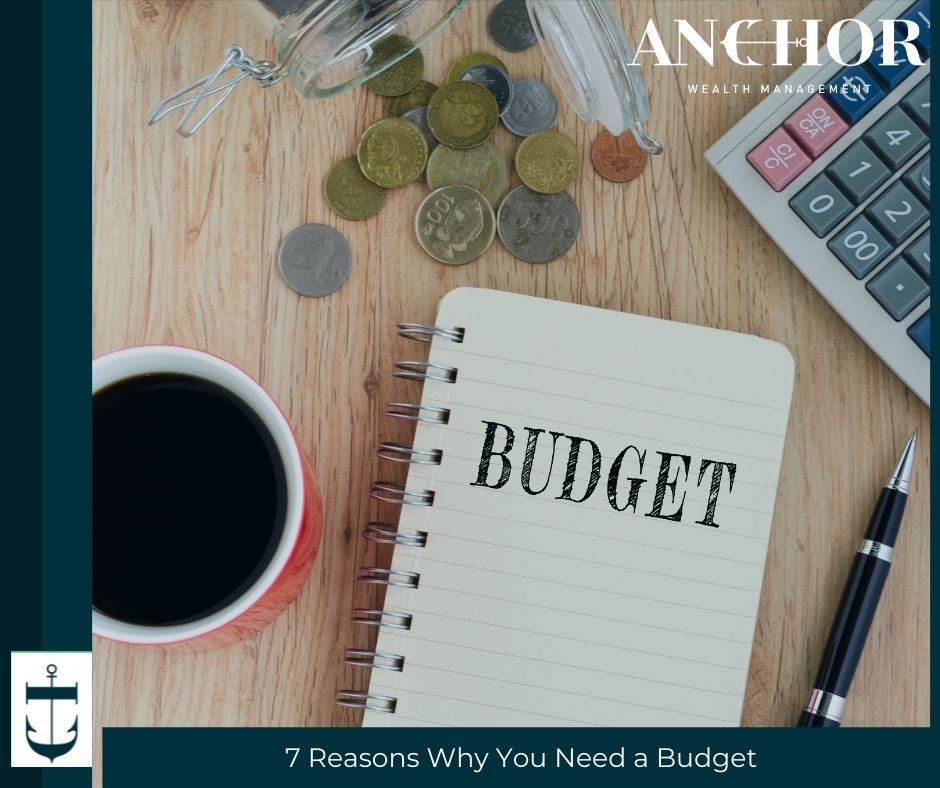
Throughout the previous two tumultuous years, there have been ups and downs, and not just in the markets. Everyone has felt an impact of the pandemic whether physically, mentally, or financially. Though the impact was different for everyone, the reaction was the same. We all sought to gain control of our lives in the areas we could impact to offset the loss of control we felt in other areas. Visually, this looks like empty store shelves where toilet paper was once stocked. Collectively, we all deep cleaned our houses and, thanks to some unexpected savings, we also looked for ways to deep clean our finances. I’ll save my house cleaning tips for a future meeting, but instead here are seven reasons why now is a great time to start (or clean up) your household budget.
- Life is unpredictable. A budget assumes this and provides for the unexpected, beforehand. One critical part of a budget, the emergency fund (generally 3-6 months of total living expenses), will get you out of most scrapes with ease. Flat tire? Covered. Broken fridge? No problem. Unexpected surgery? Ouch, but okay.
In fact, considering how well an emergency fund prevents mischance from becoming an emergency, it should probably be called the “inconvenience” fund.
- The amount you make < what you do with it. If you are terrible with money, having more will only make you terrible with more money. If you’re living paycheck to paycheck, you’ll likely keep doing so as your income increases.
I never felt richer than I did as I started to see the rewards of my first budget. The reason was simple: I paired serious strategy with a growth mindset. No secret sauce or fancy finagling.
- Goals get clarified or solidified. A clear goal will motivate you and be much more rewarding than a general “don’t screw up the money stuff.” You’ll also realize what’s most important to you as you take stock of your financial picture. Once you allow yourself to plan (and dream), your deeper desires will surface. A trip to the Grand Canyon, a screened-in porch to relax on, a new vehicle for your spouse, a maxed-out college fund for your kids…these will become realities when you’re intentional with your money.
- Bad habits come to light. You know how your dental hygienist always asks, “How often are you flossing?” You can fib. “Oh every day, without fail.” But when they start cleaning your teeth, the truth will prevail. It’s the same with retail therapy. Bloody gums and bank statements don’t lie.Once you crunch the numbers, at the very least, you’ll have a firm grip on where your cash is going. So if you spend enough for a second house payment on gel pens, sports memorabilia, or donuts every month, at least you’ll be doing it on purpose. (Or maybe stop doing that.)
- A budget simplifies and destresses your life. Budgets aren’t hard to create. The key is to track all your expenses and spend less than you make. Imagine not worrying about what you’ll do if your toilet explodes, you’re unemployed for a few months, or your vehicle goes belly up.
- You become the real boss of your money. You get the joy of living well within your means, the peace of getting out of debt, the fun of spending money on the things you most care about, and the self-assurance that you can make the best use of your resources in want or plenty. That will never happen without a clear plan of action. Budget = official bossy money plan of action
- Perfection isn’t necessary. Neither is being a fussy, supersensible adult who has no fun. Budgets actually pave the way for more fun without the usual guilt or regret. Instead of, “I’m broke. I can’t go,” you’ll be saying, “We’re going in three months and we’re staying at a five-star hotel for eight days.” Instead of “Why did I buy that?” you’ll be crowing, “Check it out!”If keeping track of every dollar sounds overwhelming or soul-crushing, try a budgeting tool like everydollar.com. Just start to gather data on your spending instead of creating a spending plan.
Where you are today doesn’t predict where you’ll be tomorrow. And hope is sometimes found in simple tools that everyone has access to.
So if you’re in a dark financial hole, grab a shovel and a calculator.
And let us know if we can help.
Rianna Caswell, Wealth Advisor
